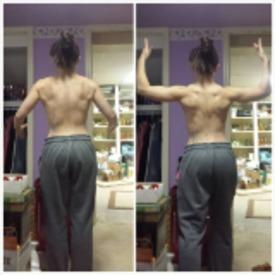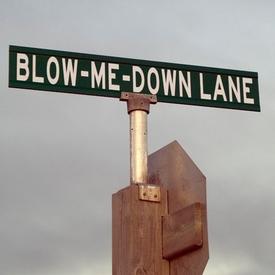Diets

xiamjackie
Posts: 611 Member
I was wondering what most of you go off of for your diets? Do you only count calories, as in as long as you stay under your certain amount of calories then you eat whatever you choose? or is anyone specifically limiting carbs or fat intake to a certain amount? And how is it working for you?
0
Replies
-
Personally, I do count calories, but I use different BMR/TDEE calclualators to determine how many I eat a day. I try to make sure to eat at least 100g of protein everyday, especially on exercise days and I try (key word, try) to keep my carbs down. I don't really worry about sugar or fat because I generally don't have a problem with either and it just becomes too much to worry about. I seem to be doing best this way. This seems to be working out well so far, I just made adjustments as far as calories are concerned about 3 weeks ago. Currently I aim for about 1600 calories a day, or net at least 1200 on workout days. Before I was eating the 1400 that MFP recommended and it wasn't enough. I'd either binge or have energy issues. So far, I feel great. I don't have a lot to lose (like pretty much everyone here), so I don't expect the weight to fly off, but I've lost a pants size so far this month.
Also, I cut WAY back on my drinking. That's hard for me, cause I like wine a lot. That and adding a few calories in has made the biggest difference for me.0 -
I strongly believe that the type of calories do matter- it's not just calories in/calories out. That works when you have a lot to lose, but when you are already on the low end of the spectrum you have to get a little more exact. Everyone's body is different so you have to figure out what ratio of protein/fats/carbs is the best for you based on your exercise routine, your goals, your energy level and how your body reacts to certain foods. Personally I know I turn into a raging b-word if I don't get a good amount of fat in my diet. I tried low-fat diets over the years, and they all left me cranky and more ugly (hair got dull, nails got brittle). That's why I eat real butter, olive oil, lots of avocados, eggs and other foods with 'healthy' fats. I've also found I function better when I have more protein. I went *almost* vegetarian for a few months (still ate a little chicken maybe 1/wk) and felt cold all the time and had less energy. I ate a lot of beans and nuts but hate soy (also believe it's really not great for you) so it was hard to get enough protein to keep me satisfied and my energy levels up. Now to carbs. I LOVE carbs- cookies and bread were my downfall for along time, but I've learned my body does not react well to them. I have a very hard time losing that "last 5 pounds" unless I almost completely cut out grain based carbs. That's not to say I don't eat a lot of carbs, but the carbs I do eat mostly come from veggies and fruits. So now I feel like I'm rambling, but I've been around the diet wheel more than once and tried a lot of different things. For me it's about finding the right balance of foods that you can stick too. They should be foods you enjoy, but that also help you meet your goals. I'm currently in a no-grain phase (although I have been cheating a bit to be perfectly honest) and pretty good so far. I'm losing fat in the right places (waist, thighs) but my energy is good.
I cycle my diet from time to time depending on what my fitness goals are at the time. Right now I'm training for a race so I'm trying to drop 5 pounds of fat to be lighter come race day. As I get closer to the race though I will cycle some grains back in.
I also agree with Rogie that cutting back on drinking helps a lot.0 -
I try not to overdo carbs, too, altho lately I have been eating more sugar than I probably should. I try to eat 100-120 g of protein daily and plenty of healthy fats (avocado, lean meats, eggs, coconut oil), then fill the rest with carbs, and I should get most from fruits and veggies, but I am eating a little bread lately, rice once a week or so, and I've added oatmeal back in. I workout 6 days a week and eat about 1900-2100 calories a day. That's not always reflected on MFP because the meat entries here don't seem particularly accurate and I don't have the patience to search to find the right entry every time. Or create my own.0
-
Most of the medical literature I've been reading strongly suggests that the type of calories (fats are really still just calories) really doesn't matter for overall weight loss; calories in/out is the key. They do say for reasons not totally understood that low carb diets work. Personally, I tend to avoid straight carbs (bread and pasta really) because they add so many calories to my day without filling me up or giving me nutrients. I try to focus on eating whole foods as much as possible and getting all my nutrients. As far as healthy eating goes, type of calories really does matter. Saturated fats = bad. Mono and poly unsaturated fats = good. Carbs = meh (depending on simple{bad} or complex{good}). Nutrient dense foods are always good, and energy dense foods are not optimal.0
-
I try to eat healthy, and then I log the calories as a secondary method, I guess.
"reasons not totally understood" low-carb diets work.
This is the reason put simply:
When you eat carbohydrates and sugars (carbohydrates turn into sugars) your body produces insulin (unless you are like me and a type one diabetic) which is a growth hormone.
Modern diets high in carbohydrates cause a lot of insulin to be produced over the course of a lifetime. Sometimes this leads to insulin resistance which, in turn, cause type two diabetes. Because people with higher body fat eat more, it is likely that they eat more carbohydrates, thus this links type two diabetes to body weight and to old age. Type two diabetes thus have to take tablets in order to be able to "receive" the insulin their body produces.
You go on a diet lower in carbs and sugars, you produce less insulin = less growth hormone = skinnier.
Here is the reasoning more in depth:
Low blood glucose causes the pancreas to produce glucagon, which stimulates the liver to convert stored glycogen into glucose and release it into the blood (again, unless you are like me and a type one diabetic, because my pancreas is basically a useless hunk of junk). When liver glycogen stores are exhausted, the body starts utilizing fatty acids instead of glucose. The brain cannot use fatty acids for energy, and instead uses ketones produced from fatty acids by the liver. By using fatty acids and ketones as energy sources, supplemented by conversion of proteins to glucose (gluconeogenesis), the body can maintain normal levels of blood glucose without dietary carbohydrates.
Unless a meal is very low in starches and sugars, blood glucose will rise for a period of an hour or two after a meal. When this occurs, beta cells in the pancreas release insulin to cause uptake of glucose into cells. In liver and muscle cells, more glucose is taken in than is needed and stored as glycogen (once called 'animal starch'). Thus diets with a high starch/sugar content cause release of more insulin and so more cell absorption. In diabetics, glucose levels vary in time with meals and vary a little more as a result of high carbohydrate content meals. In non-diabetics, blood sugar levels are restored to normal levels within an hour or two, regardless of the content of a meal.0 -
I strongly believe that the type of calories do matter- it's not just calories in/calories out. That works when you have a lot to lose, but when you are already on the low end of the spectrum you have to get a little more exact. Everyone's body is different so you have to figure out what ratio of protein/fats/carbs is the best for you based on your exercise routine, your goals, your energy level and how your body reacts to certain foods.
I totally agree. I feel on days when I was tunnel vision to just calories, and WHAT I ate didn't matter as long as I stuck to the calorie limit, I felt deprived because a) Processed and unhealthy foods tend to be more caloric, so you wouldn't get to eat as much and b) Your body needs nutrition to function and feel "full", if you're not feeding it the proper amounts of good nutrition, it's going to always feel hungry. When I started paying closer attention to what I ate, I overall felt not only physically better, but much more satisfied. It wasn't too hard to adjust since I've never been big into eating out or eating fast food in the first place, though there was quite a bit of processed foods I had to limit, which was kinda difficult at first, but you get used to it (and not "used to it" in an "accepting" way, but rather, your body just doesn't crave that junk anymore).
I like to focus mostly on eating healthy foods, but calories are still important to me. Even if I ate a 100% whole foods diet, I still don't think I can get away with 4000 calories of it so tracking calories is still important, in my opinion. I was kind of OCD as of last week about my fat and sugar intake, but found it to be too discouraging, especially since I enjoyed my healthy fats (nuts, seeds, avocados, PEANUT BUTTER) and just a few fruits destroyed my sugar intake...I realized as long as my fats and sugars are coming from healthy sources, I shouldn't be so caught up in the numbers.
so tracking calories is still important, in my opinion. I was kind of OCD as of last week about my fat and sugar intake, but found it to be too discouraging, especially since I enjoyed my healthy fats (nuts, seeds, avocados, PEANUT BUTTER) and just a few fruits destroyed my sugar intake...I realized as long as my fats and sugars are coming from healthy sources, I shouldn't be so caught up in the numbers.
Also I nearly forgot to mention protein. Since I almost always meet my protein requirements, I no longer really am conscious when it comes to tracking them, but at first I did. I think protein is very important for losing weight and building lean body mass, so besides keeping a watch at my calorie intake from healthy sources, I also double check my protein is in check 0
0 -
I'm trying to build muscle so, yes, I watch my micros to ensure that I'm getting adequate protein.
You also have to decide whether you're doing this to simply lose weight or to be healthy. Of course, in terms of weight, a calorie is a calorie, but in terms of health, a broccoli calorie are far superior to a twinkie calorie.0
This discussion has been closed.






